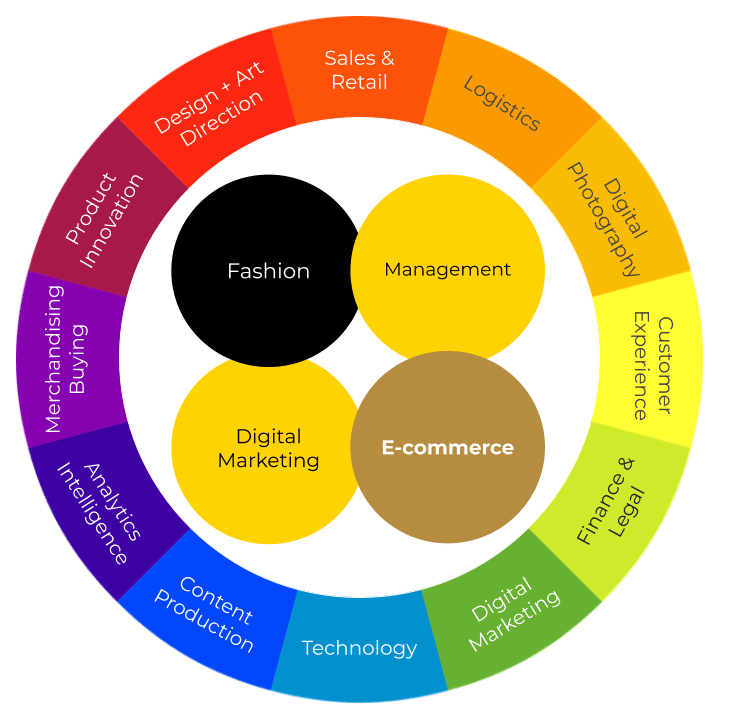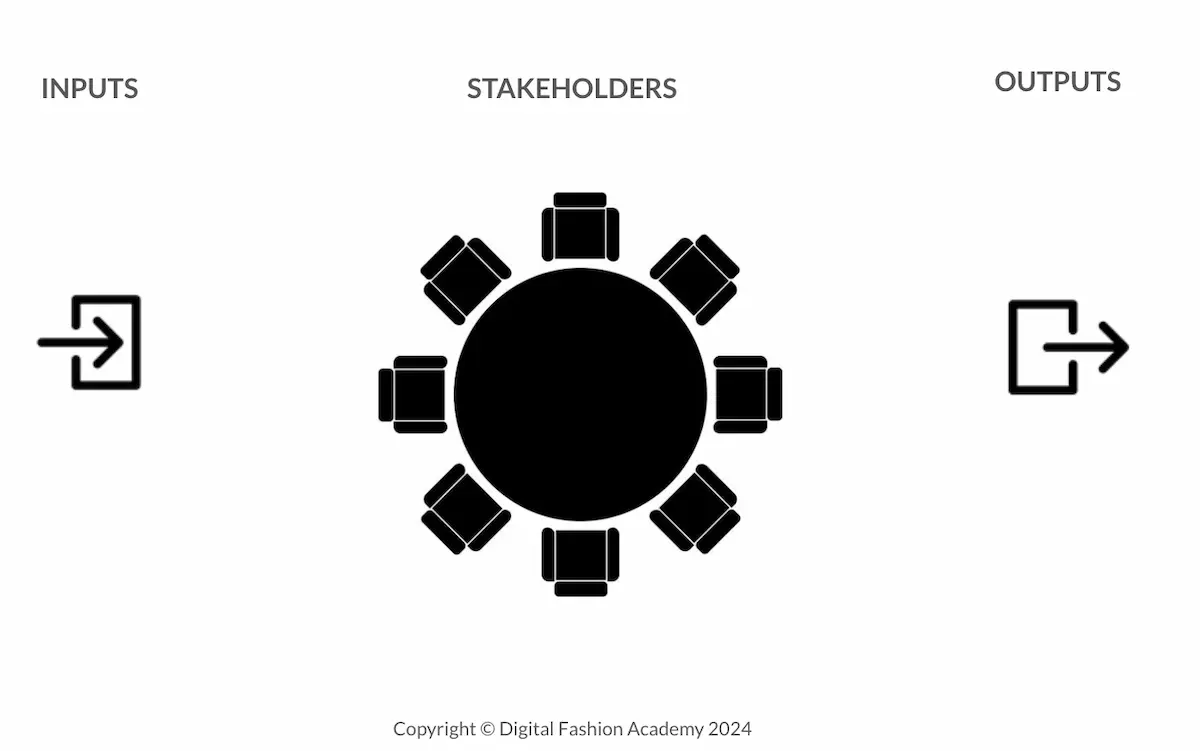
Digital Academy Original Methodology
Our classes are designed to work in the fashion industry
Digital Fashion Academy Competence Model
Digital Fashion Academy has analysed and aggregated in our courses the range of skills that are mostly on demand in the current fashion & luxury industries.
COMPETENCE MODEL
COMPETENCE MODEL
⇢ Knowledge graph
⇢ Value Chain approach
⇢ Input-Output model
FOCUS ON
⇢ Goals of functions
⇢ KPIs & Metrics
⇢ Working tools
⇢ Best practices
⇢ Processes
TRAINING METHOD
⇢ Virtual Classrooms
⇢ Access to Subject Matter Experts (SME)
⇢ Social Learning
CONSOLIDATION
⇢ Practice on real business cases
⇢ Case studies analysis & workshops
⇢ Digital Portfolio creation
⇢ Progress verification
CERTIFICATION
⇢ DFP Certification
⇢ DFA Proprietary solution
PROFICIENCY LEVELS
⇢ Elementary
⇢ Intermediate
⇢ Advanced
LOCATION
⇢ Online live lessons
⇢ Online live Workshops
⇢ Online On Demand
Knowledge graph
Our competence model represents the set of skills that are considered essential to the role of Digital Fashion Manager.
Starting from business skills in the commercial area, to the understanding of technology, to how design influences sales performance.
The four circles in the centre represent these areas of study:
- Fashion industry specific knowledge and rules
- General management: management and organisation
- E-commerce Management: strategy, performance and innovation
- Digital Marketing: Brand Communication, Performance Marketing

Digital Fashion Academy competence model © 2023
Value Chain Approach
Our Lessons cover all the activities in the Digital Fashion Value Chain model represented and adapted by our experts to meet the needs of Fashion & Luxury companies.
The digital fashion value chain activities follow the classic classification in vertical activities or Functions and cross-function or staff activities
The functional activities are at the core of the hard skills such as technical, financial, operations, digital marketing while the staff activities entails: human resources management, project management and digital supply chain.

Digital Fashion Academy competence model © 2023
Input Output Model
The management methodology adopted by Digital Fashion Academy is based on the inputs-outputs model.
In the input-output model all the management activities are based on inputs from statistical, financial, historical and market data.
The inputs are utilised by managers and stakeholders who make decisions on strategies and actions (Output)
This method is used for example when planning future financial performance, basing the assumptions on historical performance data and market trends.

Digital Fashion Academy competence model © 2023
Professional Certification
Digital Fashion Academy provides a certification of the digital skills specifically for the fashion industry.
In order to obtain the certification, the students need to complete the project work “digital portfolio” as part of the “e-commerce and digital marketing course” and pass the online exam.
The DFP Certification sums up the results of proficiency levels in all the different areas included in the certification assessment and returns total level.
The certification is based on a quiz of closed questions that spans over all the areas of ecommerce value chain activities: from finance to technology, from ecommerce operations to digital marketing. One person can be advanced in one area and basic in another. For Example one can be advanced in digital analytics but basic in User Experience.
The DFP Certification sums up the results of proficiency levels in all the different areas included in the certification assessment and returns total level.
